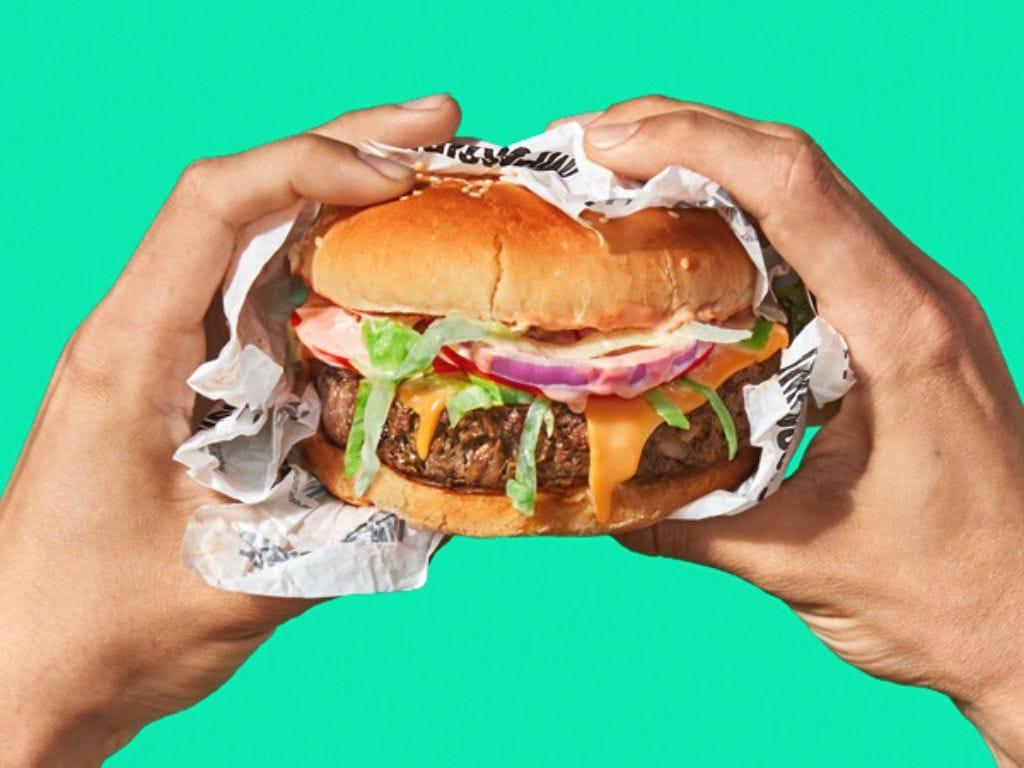The New Ersatz
A clean green fake is still a fake
Never underestimate the lengths people will go to for coffee. It is a substance so comforting that, when it can’t be obtained, something like it must be devised. Acorns, chicory, molasses, soybeans, even burnt rice: these are some of the ingredients from which coffee-starved peoples have managed to extract a dark, bitter liquid.
The Germans, who have endured shortages of many things but never vocabulary, gave us a word for such substitutes: ersatz products. These have appeared in many cultures, usually when trade is disrupted or rationing in place. “Damn this cigarette is good!” boasts the villain of Guillermo del Toro’s film Pan’s Labyrinth, set in the aftermath of the Spanish Civil War. “Real tobacco – hard to find.” Over the years, all manner of dried leaves have been stuffed into ersatz cigarettes, just as all kinds of organic matter has found its way into ersatz sausages.
This all seems very remote from our own relative material abundance, and yet we too have entered an age of ersatz. Everywhere you look, substitutes are being devised for cherished products: oat milk and plant-based meat, faux fur and bamboo socks, electric vehicles and electric cigarettes. There is even the prospect of eggless eggs and, yes, synthetic coffee. These alternatives have not emerged in response to shortages, but moral trends, especially regarding health and the environment. Still, they are undoubtedly ersatz. Fake meat is designed to bleed, vapes to produce plumes of smoke. As The Verge reports, Toyota is working on an electric car that “mimics the feel of driving a manual transmission, complete with a gear shift that’s not connected to anything and a floor-mounted speaker to pipe in fake engine noises.”
Much depends on this ersatz offensive. Consumer societies draw legitimacy from the idea that they provide people with things they want; at the same time, they can’t be seen to blithely destroy the natural world and poison their consumers in the process. Cleaner, greener substitutes appear the only way of resolving this contradiction.
From a commercial perspective, their appeal is obvious. They replace things we might feel bad about buying with things we feel good about buying. They can be presented as fashionable novelties and exciting innovations. More profoundly, they allow us to believe that illiberal measures like banning things aren’t necessary, since we can change the world with ingenuity and better choices. In fact, we hardly need to change at all: by swapping guilty pleasures for the kosher alternatives, we can keep our bad habit and feel like we’ve made a difference. Having our fake and eating it, you might say.
Things aren’t really so simple of course. It is far from clear that ersatz goods are capable of saving consumerism from itself. For one thing, faith in such products will be eroded as it becomes clear that improvement in one area often creates a setback elsewhere. Vaping has resulted in a wave of plastic pollution and the marketing of nicotine products to teenagers, and it still isn’t clear how harmless these chemicals actually are. Fashion brands have proudly embraced fake fur in the name of animal welfare, yet the mass production of these garments remains an environmental disaster. Even if the weighing of costs and benefits proves positive overall, people always feel disillusioned when something marketed as a breakthrough turns out to be much more ambiguous.
As for the products most entwined with everyday life, namely food and cars, green alternatives are running into difficulties. A few years ago, there was enormous hype surrounding plant-based meat replacements; Beyond Meat’s 2019 stock market launch was the most successful in a decade. But since the pandemic, fake meat’s sales and endorsements have crashed. Meanwhile, governments are not leaving it to the market to phase out petrol and diesel cars, opting instead to coerce drivers with financial and regulatory pressures. This has led to more electric vehicles being sold, but it is also provoking revolts from resentful drivers, such as the gilet jaunes protesting fuel taxes in France, the “blade runners” attacking ULEZ cameras in Britain, or “rolling coal” stunts in the United States, where modified diesel trucks spray their exhaust fumes across the motorway, sometimes into the path of Tesla drivers.
Much of this anger stems from the growing costs of car use, but there are also deeper issues in play. If a love of habit makes certain things essential to replace in times of shortage, it makes them difficult to replace without a shortage. The taste of meat and the vibration of a combustion engine are sensations deeply rooted in the texture of life; to lose them is, at least for some, to lose a part of themselves. Moreover, in cultures which have traditionally emphasised personal liberty, there will always be people who resent pressure to change their lifestyles, whether it comes from progressive opinion or the state.
The result is that a person’s right to enjoy his or her products becomes politicised. At its annual conference this month, the UK’s Conservative Party pledged to protect voters from a “war on drivers,” as well as a Labour “meat tax.” Whether these threats are imaginary, as many have argued, is almost beside the point; the Tories clearly think there is a sense of persecution they can tap into here. In the US meanwhile, electric vehicle sales are massively slanted towards Democrat voting areas, while analysts report that conservatives see fake meat as woke.
There is, however, a more basic issue with the new ersatz. It is self-defeating. Essentially, the more you try to imitate something, the more you reinforce its desirability; that applies to fancy fava bean chicken as much as a pitiful cup of acorn coffee. After all, why would you go to the trouble of making an electric car sound like it has an engine, or a soy burger look like it’s bleeding, if engines and meat aren’t wonderful things? As long as substitutes are recognised as substitutes, they will seem fake – fake in both senses, artificial and inauthentic – and make us yearn for the real thing.
When it comes to the products people are most attached to, there are really only two possibilities. Either they will be suppressed by the state, as many governments are already doing with combustion vehicles and tobacco, or the attempt to suppress them will get caught up in a populist backlash and fail, or only half-succeed. The idea that consumerism can reform itself through ingenuity, marketing and personal choice is just wishful thinking.




